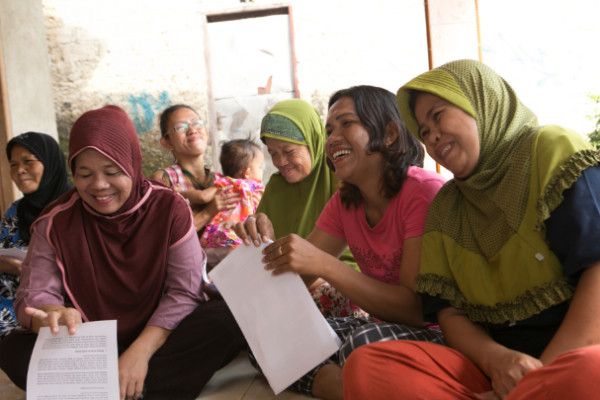
Improving targeting in social welfare programmes in Indonesia

Context
Governments in developing countries often find it challenging to identify or target people for poverty reduction programmes because they lack verifiable records of people’s income and assets. Despite developing targeting strategies that do not rely on directly observing incomes, targeting errors in these programmes are an enduring challenge. They can have mis-targeting rates of up to 50 per cent, which means many social programmes designed to help the poor never end up reaching them.
To address this issue, Indonesia's Ministry of National Development and Planning (BAPPENAS) has been working on a unified, nationwide database of welfare participants. It sought technical assistance to develop strong targeting strategies that select, list and update the names of recipients of multiple social programmes.
Abdul Latif Jameel Poverty Action Lab and local World Bank researchers designed and carried out the 3ie-supported evaluation in cooperation with BAPPENAS. They compared the efficacy and cost-effectiveness of different targeting methods, including proxy means testing; community targeting; and self-identification for a government-supported conditional cash transfer programme, Program Keluarga Harapan (PKH).
PKH covers approximately 6–10 per cent of the poorest of Indonesia’s population. Eligibility is determined based on proxy means testing – a weighted sum of approximately 40 easy-to-observe assets. Programme participants receive approximately US$150 per year for six years.
The 2010 evaluation came at a particularly relevant time, as the government was deliberating on moving away from targeting based on costly surveys and planning to redesign its national policy for administering social programmes like PKH. Researchers worked with all relevant departments, including the National Team for the Acceleration of Poverty Reduction (Tim Nasional Percepatan Penanggulangan Kemiskinan, or TNP2K), the Central Statistics Agency (Badan Pusat Statistik, or BPS) and BAPPENAS. The evaluation provided timely insights for developing more accurate beneficiary lists and informed targeting mechanisms to facilitate the updating of such databases.
Evidence
The study findings showed that self-targeting is more effective, and more cost-effective, in targeting people living in poverty than the current approach of using proxy means test–based surveys to target the government-supported conditional cash transfer. Community-based targeting was less effective. However, communities were more satisfied with community-based targeting than self-targeting.
Evidence impacts
Type of impact: Inform discussions of policies and programmes
When subsequent phases of the evaluated programme or policy draw from the findings of the evaluation or review, and/or the study team participates in informing the design of a subsequent phase.
This is one of 3ie’s seven types of evidence use. Impact types are based on what we find in the monitoring data for an evaluation or review. Due to the nature of evidence-informed decision-making and action, 3ie looks for verifiable contributions that our evidence makes, not attribution.
Read our complete evidence impact typology and verification approach here.
Close windowAlthough the government has stopped large-scale participant identification surveys, it is still testing the transition to alternative cost-effective targeting mechanisms to update its unified database of social programme participants. In line with the findings, the government is gradually moving towards integrating self-targeting and community targeting mechanisms.
In 2018, TNP2K launched a pilot project, Mekanisme Pemutakhiran Mandiri, to test a self-targeting mechanism that was similar to the one in the 3ie-supported impact evaluation. According to a senior TNP2K official, the study findings (along with other related research) informed discussions regarding the design of the pilot project, particularly its self-targeting strategy. Under this pilot project, people who are eligible for social programmes can proactively apply for inclusion in the unified database of government welfare scheme participants.
Suggested citation
International Initiative for Impact Evaluation (3ie), 2019. Improving targeting in social welfare programmes in Indonesia (online summary), Evidence Impact Summaries. New Delhi:3ie.
Evidence impact summaries aim to demonstrate and encourage the use of evidence to inform programming and policymaking. These reflect the information available to 3ie at the time of posting. Since several factors influence policymaking, the summaries highlight contributions of evidence rather than endorsing a policy or decision or claiming that it can be attributed solely to evidence. If you have any suggestions or updates to improve this summary, please write to influence@3ieimpact.org